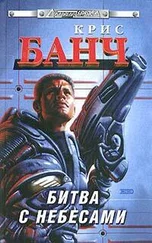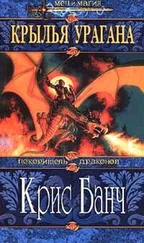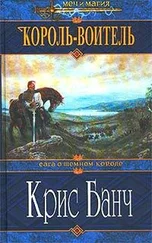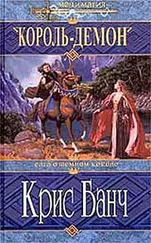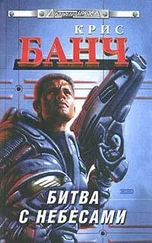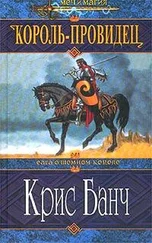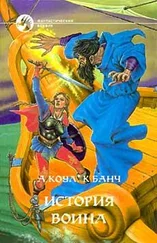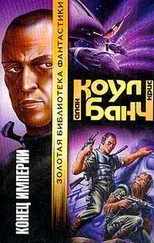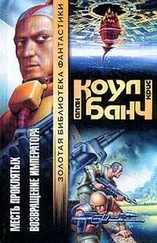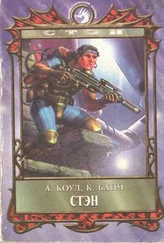Кристофер Банч - Vortex
Здесь есть возможность читать онлайн «Кристофер Банч - Vortex» весь текст электронной книги совершенно бесплатно (целиком полную версию без сокращений). В некоторых случаях можно слушать аудио, скачать через торрент в формате fb2 и присутствует краткое содержание. Жанр: Боевая фантастика, на английском языке. Описание произведения, (предисловие) а так же отзывы посетителей доступны на портале библиотеки ЛибКат.
- Название:Vortex
- Автор:
- Жанр:
- Год:неизвестен
- ISBN:нет данных
- Рейтинг книги:4 / 5. Голосов: 1
-
Избранное:Добавить в избранное
- Отзывы:
-
Ваша оценка:
- 80
- 1
- 2
- 3
- 4
- 5
Vortex: краткое содержание, описание и аннотация
Предлагаем к чтению аннотацию, описание, краткое содержание или предисловие (зависит от того, что написал сам автор книги «Vortex»). Если вы не нашли необходимую информацию о книге — напишите в комментариях, мы постараемся отыскать её.
Vortex — читать онлайн бесплатно полную книгу (весь текст) целиком
Ниже представлен текст книги, разбитый по страницам. Система сохранения места последней прочитанной страницы, позволяет с удобством читать онлайн бесплатно книгу «Vortex», без необходимости каждый раз заново искать на чём Вы остановились. Поставьте закладку, и сможете в любой момент перейти на страницу, на которой закончили чтение.
Интервал:
Закладка:
The rest of her question was cut off by Mahoney's emergency beeper. He whipped it from his belt and keyed in. "Mahoney, here."
The officer's voice rasped through the speaker. "You better get back here fast, sir. We just picked up a fleet heading for Jochi. They're confirmed unfriendlies, sir."
Mahoney was already running as he keyed out. The others sprinted after him.
Venloe lay cold in his drawer behind them, his mystery forgotten in the impending attack.
The morgue attendant—who had overheard the news—hustled off to make his wife an even happier woman.
CHAPTER THIRTY-NINE
Admiral Han Langsdorff had obviously either slept through or cut his class in Basic Military Mistakes some fifty years earlier.
He took the three Imperial battleship flotillas out to stop the Suzdal/Bogazi invasion fleets full of confidence and contempt. This would be a simple, if bloody, mission. First he expected these primitive beings—Langsdorff concealed it rather well, but he was a xenophobe—to freeze when confronted with the mailed fist of the Empire. After they recovered from their awe and terror, they might, at worst, form a battle line and attempt a frontal engagement.
Langsdorff dangled one cruiser squadron as bait and arranged his main battle force in a lopsided wing behind and to one side of the decoys.
The enemy would attempt to attack the Imperial force, and it would be simple for Langsdorff to turn their flank and have all of them enfilade.
It was not a complex plan. But simplicity was a virtue in battle. Besides, how could any consortium of oversize avians and canines stand against the Empire?
He certainly wasn't the first battle leader to hold his foe in utter contempt. History has made a very full list of occasions when the same thing happened:
The Hsiung-Nu long-term disaster in Turkestan. The Little Horn. Isandhlwana. Magersfontein. Suomussalmi. Dien Bien Phu. Saragossa. And on, and on, and on.
Even the name of his flagship might have helped. Langsdorff vaguely know that the Repulse , many incarnations before, had been a water-borne warship. He even vaguely remembered it was something called a battle cruiser. That was the sum of his knowledge.
He did not know that the Repulse's namesake—and an accompanying battleship—had sailed calmly into harm's way, confident that the mere presence of battleships would create paralytic terror in the enemy; that no one would hazard land-based aircraft over the open sea; and that certainly no one from the never-sufficiently-despised Mongoloid subspecies of the human race would dare confront these magnificent examples of Empire.
It took the Japanese land-based atmospheric bombers just under one hour to sink both warships.
Langsdorff scanned the screen. The longer-ranging Imperial sensors had picked up the Suzdal/Bogazi fleets. He snorted. These beings could do nothing right. If he were invading a cluster's home world, he would certainly have come up with more warships than he was looking at—even if he had to bolt missile tubes to every lunar ferry he could requisition.
Two hostile cruiser squadrons smashed at the Imperial cruisers in a frontal assault. Bare minutes later, two more Suzdal/Bogazi formations—these formed around tacship carriers and heavy cruisers—came down on the Imperials from above and below, like the closing jaws of a nutcracker.
The Imperial cruisers fought back—but were outgunned.
The battle was joined. Admiral Langsdorff ordered his battle-wagons in, to envelop the Suzdal/Bogazi left flank, just as the human Turks had attempted in the sea battle called Lepanto. But unlike the Ottomans, he kept none of his forces in reserve.
The Suzdal/Bogazi fleet commanders believed, just as Langsdorff did, that in battle simplest is best. Their tactics were taken from the cliché drawing of a minnow being swallowed by a slightly larger fish being swallowed by a shark being swallowed by a whale.
Because farther above and below the jaws that had closed on the Imperial cruisers were the real Suzdal/Bogazi heavies. Their admirals waited until Langsdorff's battleship formations were irretrievably committed.
And then they closed the bigger jaws on the far richer prize: the entire Imperial strike force.
Langsdorff was dead before he could bleat for help—help that just didn't exist.
The battle was a catastrophe—for the Empire.
The Suzdal/Bogazi lost five cruisers, fourteen destroyers, and a scattering of lighter craft.
The Imperial survivors were one battleship, three cruisers, one tacship carrier, and twenty troops.
The Suzdal/Bogazi fleets reformed triumphantly and drove on toward Jochi. Their victory would not, however, be studied at many military academies, even those of the victors.
Massacres, for some reason, aren't vastly interesting to soldiers.
Langsdorff's disaster left Jochi wide open for invasion—and the First Imperial Guards Division stranded on a hostile world.
CHAPTER FORTY
The embassy shuddered under the heavy storm blasting down from the mountains. Even here—in the conference chamber buried far under the building—Sten could hear lightning crack and thunder roll.
He shivered. Not from the cold rain outside, but from the words being spoken by the strange being hovering a meter above the chamber floor.
"… I regret to say, my reasoning did not prove faulty. Perhaps that's why I went to such risk and trouble to visit Dr. Rykor. False hope that I was in terrible error. And that our wise friend would gently guide me back to reality."
Sr. Ecu gave a flick of his tail and drifted to Sten's side. A sensitive tendril whiskered out and touched Sten's hand.
"But there was no error. The Eternal Emperor is quite mad—and only certain disaster can result."
Sten said nothing. He felt orphaned for the second time in his life. He had worked and fought for the Emperor since adolescence—after his real family had been killed.
"I can barely bring myself to believe this," Mahoney said. Although he had suspected as much for some time, he found the hard truth difficult to choke down.
"I am very sorry, my old friend," Sr. Ecu said. "But you of all people know just how correct I am. However… there are two other things I should tell you both."
He shifted position, dropping a little lower to the floor. A tendril whiskered through the open case. Mahoney found himself holding a fiche.
"That is an intelligence file my operatives have put together. You see, when I became convinced the Emperor was insane, I wondered who was advising him now. Who had his ear? Who was doing his bidding?"
Mahoney stared at the fiche. "And you learned?"
"Poyndex," Ecu said flatly.
Sten sucked in air as another blow fell.
"But the man's a turncoat," Mahoney protested. "He betrayed the Emperor to join the privy council. Then he betrayed them to save his own life."
"This is true. And now he commands the Emperor's efforts to bring the Empire's provinces into dominion status. A job, my sources tell me, you rejected. On moral grounds."
Mahoney slumped in his chair, a portrait of despair. "How could things come to such a pass?" he said. "After all these years?"
The Manabi's tendril drew forth more bad news. It was Sten's turn. He was presented with two paper-jacketed files. One was blue, the other red. He duly saw his name on both.
"Your personnel records," Sr. Ecu said. "Forgive my intrusion into your privacy."
Sten shrugged. What did it matter now?
"The first file—the blue one—is your official file. A record for public consumption of your many achievements in Imperial Service.
"A close analysis shows there are gaps in that record. Gaps that are artfully covered over.'' Sten and Mahoney both knew that those so-called gaps were the secret missions Sten had undertaken in the service of the Emperor.
Читать дальшеИнтервал:
Закладка:
Похожие книги на «Vortex»
Представляем Вашему вниманию похожие книги на «Vortex» списком для выбора. Мы отобрали схожую по названию и смыслу литературу в надежде предоставить читателям больше вариантов отыскать новые, интересные, ещё непрочитанные произведения.
Обсуждение, отзывы о книге «Vortex» и просто собственные мнения читателей. Оставьте ваши комментарии, напишите, что Вы думаете о произведении, его смысле или главных героях. Укажите что конкретно понравилось, а что нет, и почему Вы так считаете.

